Graham Reid | | 7 min read
Rosanne Cash: The Sunken Lands
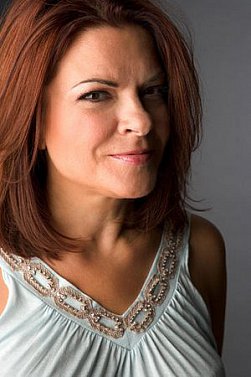
As the daughter of the late Johnny, Rosanne Cash could have had big boots to fill. But she wisely took out on her own path and, with both her first husband Rodney Crowell and her second John Leventhal, crafted country rock albums which staked out their own territory.
Her career has been intermittently interrupt by illness and taking time out to raise children, but she has become respected as a writer an columnist in addition to the small but impressive catalogue of albums,. Especially those in the past decade.
Her latest album The River and the Thread (reviewed here) finds her exploring the myths and imagery of America's South, the place she was born in 58 years ago when Johnny was recording at Sun Studio, but admits to which she lost an emotional connection having lived so long in New York.
And the figure of her father who died over 10 years ago is there in the margins because it was going back to where he grew up in rural Arkansas that prompted the album.
So, congratulations again on another wonderful album, it resonates with me even down here in the bottom of the South Pacific.
Thank you. People have told me that, even if they haven't been to the South. I think it resonates with those who feel a connection to their own roots.
I've been to the South a number of times so maybe that also is a factor. It seems to me, and I could be second-guessing you here, but I heard that after Arkansas State University bought your dad's boyhood home it prompted you to go back to the South. I guess living in New York you weren't going there that much other than touring.
I was going to Nashville fairly regularly because two of my daughters live there. But I hadn't gone to Memphis that much. Obviously over the years I'd been to Memphis a lot but it wasn't with a sense of my heart being totally open to it. I really felt like the South was in my past, I was a New Yorker and not connected to it anymore, and then I started going down when Arkansas State bought the home to do fundraisers.
Then I made a very good friend in Alabama and then Marshall Grant died, he was my dad's original bass player and I spent some time with Etta his wife of 65 years . . .
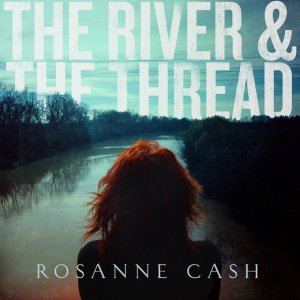 That's a beautiful song [Etta's Song]
you've written from his perspective.
That's a beautiful song [Etta's Song]
you've written from his perspective.
Thank you. All of these things happened at once and the inspiration for the songs started coming . . . and more than that, just a feeling of connection to this thing that I thought I had put behind me.
Some people say the South is not a place but it's a feeling or concept. Is that how you see it, there's something about the southland that makes it very different?
Oh yeah, it is very, very different. It's very peculiar and strange in a way, it has a mysticism about it and for anyone who makes roots music it's the motherland. The music of the Delta and Appalachia, anyone who does roots music these are where we trace it back to.
And it's the seed of revolution in our country. The Civil Rights movement also began there. The people there are also very particular, they have instant intimacies and they are very loyal. If they get connected to you they stay connected.
Unlike New Yorkers who will tell you their whole life story then walk away and you never see them again.
Yeah, tell me about it! (laughs).
The thing about the South to me too though is it is steeped in religion and your album has a lot of that running through it. I'm always interested to ask why people think that happened in the South.
I don't think there's any religion in my record but there is certainly a sense of spirituality, but neither John nor I are religious. In fact, when we wrote Tell Heaven we wanted to write a secular gospel song, something that even atheists could relate to, something about that longing we all have for something to take all our burdens away. So it's not about a religion.
But you're right the sense of religion being very strong in the South. I'm not sure why that is. It would be worth tracing.
You mention “Jesus came from Mississippi” in one song but I'm guessing if you aren't religious you may have some faith that guides you?
I do. I believe in God and I pray, but it's not inside any religion that's for sure. It's not even inside Christianity, I think it's broader than that. But that song you mentioned World of Strange Design, I wanted to look out from Mississippi and I've heard Southerners say how they claim Jesus and Christianity, which is particularly Southern. So with that kind of madness I wrote “Jesus came from Mississippi and tears began to rhyme” which to me is the music of the Delta, and this is what it would look like.
There is a song on there too which seems to address your grandmother who raised seven children, I think. I'm talking about The Sunken Lands.
Yeah, that is about her.
Did you know her well?
I did. She didn't die until I was in my 30s. She was a beautiful woman who lived an incredibly difficult life picking cotton, raising seven children, no electricity or plumbing for the first several years they lived there . . . and she never complained.
When we started going back to these places I felt connected to the women whose lives were really hard. I don't think we can imagine how hard their lives were.
When you went to your dad's boyhood home did that have any special resonance in ways that you hadn't expected to fell as an adult?
It did. I'd been there when I was young because dad took all his kids there. It was one thing to say 'Oh this is where Dad comes from' but when you go back in middle-age when your parents are dead and I was saying, 'Oh this is how far he walked from the house to school, and this is the size of the land he farmed, and this is the bedroom he slept in'.
That's a powerful thing and I don't know if you can feel the full weight of that until your parents are gone and you realise this is connected to you too.
I mean, I'm a New Yorker for 23 years but one generation back they were cotton farmers. That is just kind of mind-bowing.
I talked to the Memphis writer Robert Gordon recently and he was talking about the Civil Rights movement and said he sometimes just weeps when he sees his kids playing with black kids, which was something unthinkable when he was young. It's all very recent.
Today is actually Martin Luther King Day here in the States and someone wrote to me from Memphis and said it was such a poignant day in Memphis, they still feel it deeply. And Robert Gordon is right because you can't believe what has happened in our country in just one generation.
For good and bad.
Yes, for good and bad.
There is a song on the album called The Long Way Home which seems to be about your father but could also be about anybody of course.
No it's not about him, it's about me. You know, I was talking to a friend about this and he said when he heard The Long Way Home, 'We all do that, you go through your youth and try on all these identities of who you are and who you aren't, and you take all these left-turns and long excursions and you find you've come back to yourself'.
Ah, I was immediately thinking “home” as an analogy death, going home in that sense.
No, it was going to home to yourself.
You were born and brought up in
Memphis?
I was born in Memphis but we moved to California when I
was three.
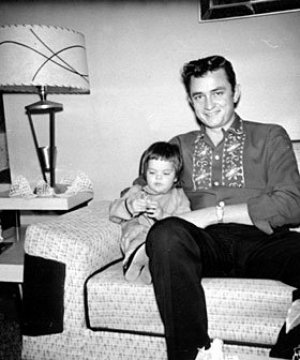 Okay. What does the word “Memphis”
mean to you when you hear it, because you reference it a few times on
the album.
Okay. What does the word “Memphis”
mean to you when you hear it, because you reference it a few times on
the album.
I get excited when I hear the word now. I'm proud of it because of all that rich music that came out of Memphis and I feel incredibly proud I was born there right into the stew of that music in the Fifties. I love going there now, I love the food an the music, and the Mississippi River that runs right through it.
And the river is a constant?
And the river runs through us.
There's also a particularly lovely song, When the Master Calls the Roll which sounds to me deliberately framed as a Civil War ballad.
It is. It's funny, my son was doing a project on the Civil War in 8th grade and I said to him you have Cash ancestors who fought on both sides, Confederate and Union. So I went on the Civil War data base and there was a picture of William Cash who was an ancestor. John had this melody and I asked Rodney if he would write a Civil War ballad with me – and it was really great that my husband and my ex-husband all wrote this song together.
But they are my ancestors and i'd always wanted to write a story ballad, like a Celtic or Appalachian ballad, that was a war history. It is so satisfying to do that.
And the characters William Lee and Maryanne just obsessed me while I was writing.
When you do a song like that do you picture the people clearly and know what they look like and how they act?
Yeah I did. I could even see Maryanne's dress. It was like a novel.
You are a writer of prose anyway. Songwriters and prose writers do approach things in a different way.
I don't know. Some of the best songwriters are story tellers so if there's not a narrative there's at least a cinematic landscape that you can see, like Guy Clark or Townes Van Zandt or Rodney. Or Steve Earle. You can see the cinema in them and I love those songs.
And just by a reference to Tallahatchie Bridge you can leap across to the mythology which came with that song.
Right, so the mythology in that song is very powerful. When I say we were dreaming it, it wasn't just the bridge but the mythology that went along with that song. We actually went there, there is an actual Tallahatchie Bridge.
And it's not very big.
No it's not, it's small (laughs). It's just a normal bridge over a small river and it's just around the corner from Robert Johnson's grave. It's amazing that all these things are so close together.
I never got to his grave but I certainly spent time in Clarksdale and saw the crossroads, at least one of them! And BB King came from just down the road.
And Howlin' Wolf and Charlie Patton.
So here's the rich source material which you've used extremely well.
Thank you very much, I appreciate it. And I could not be happier with the reviews.
There is an earlier interview with Rosanne Cash -- and album reviews -- at Elsewhere starting here. And plenty on Johnny Cash starting here.

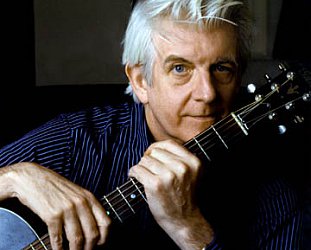


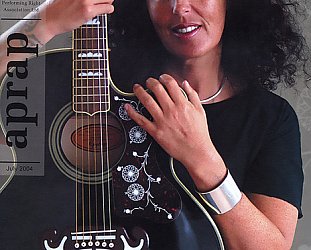
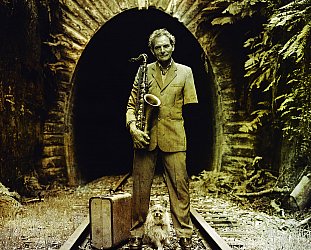
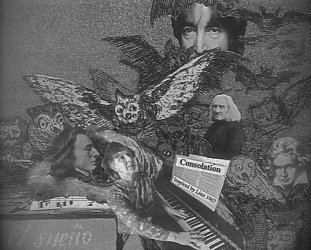
Clive - Jan 28, 2014
Great interview Graham,and she obviously likes the people that you and I rate-Guy Clark,Townes,Rodney,Steve,R Johnson,Charlie Paton,BB,The Wolf and of course Bobby G.Any theory on what they threw off the Bridge.My modern theory is that it was Justin Bieber.Anyway the Cd is Brilliant with a southern rootsy feel and now knowing her meanings behind the songs it gets even better,although you had worked out most of it,well done.Did you get to check out the Clash box,got it in a sale at JB for not a bad price,have lots of box sets ,but this is the best and of course the music is the boss as my grandson would say
Savepost a comment